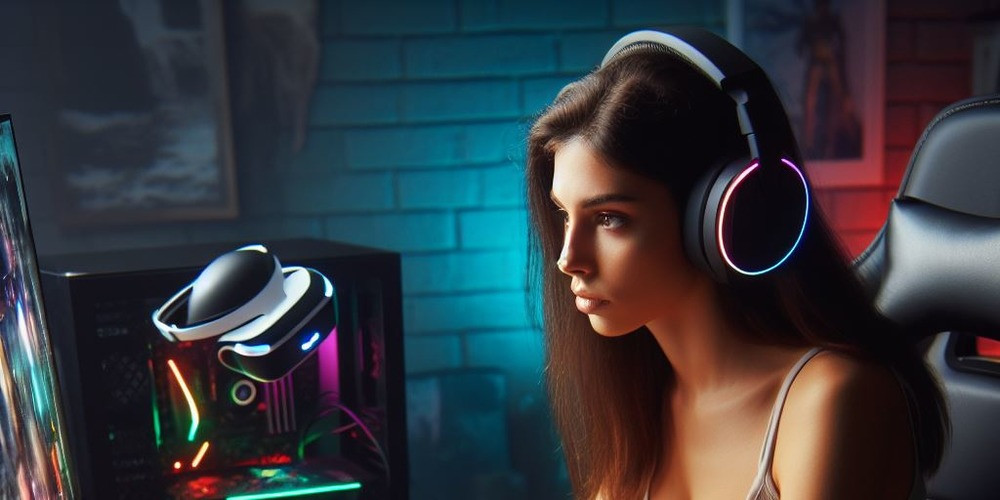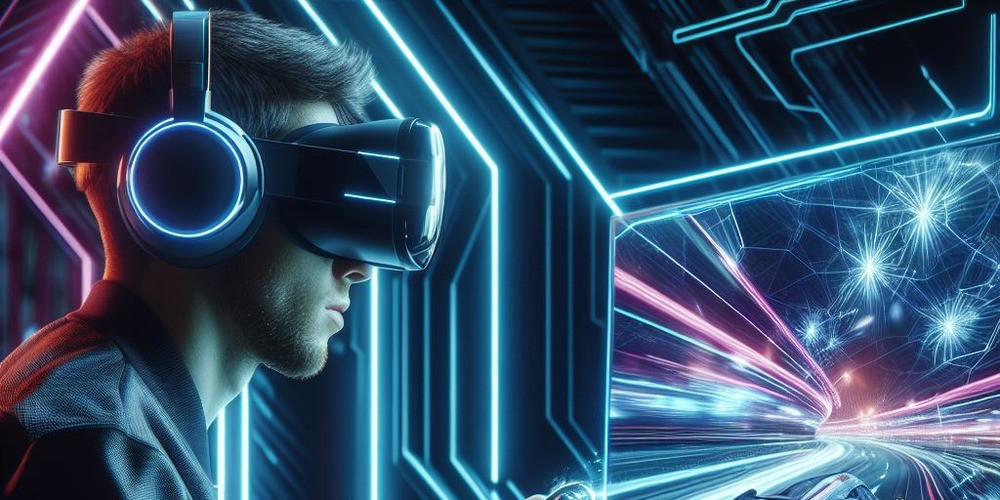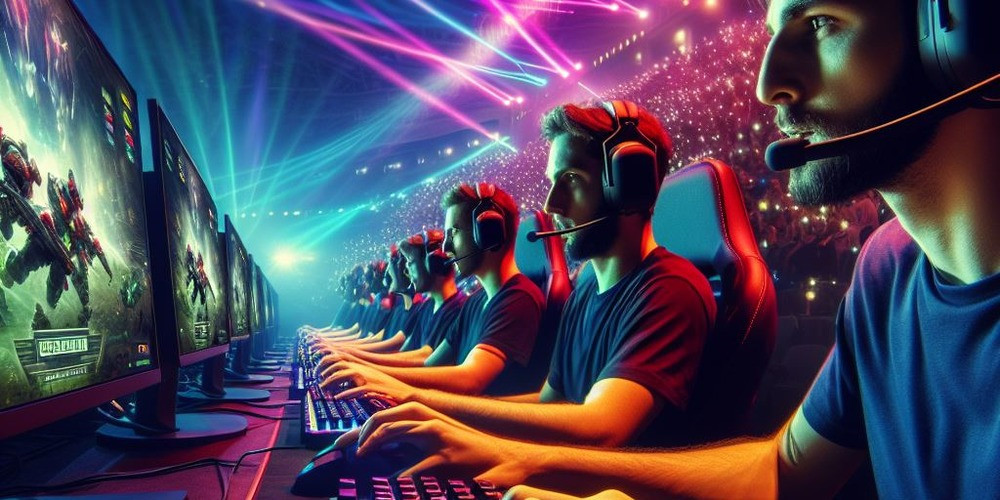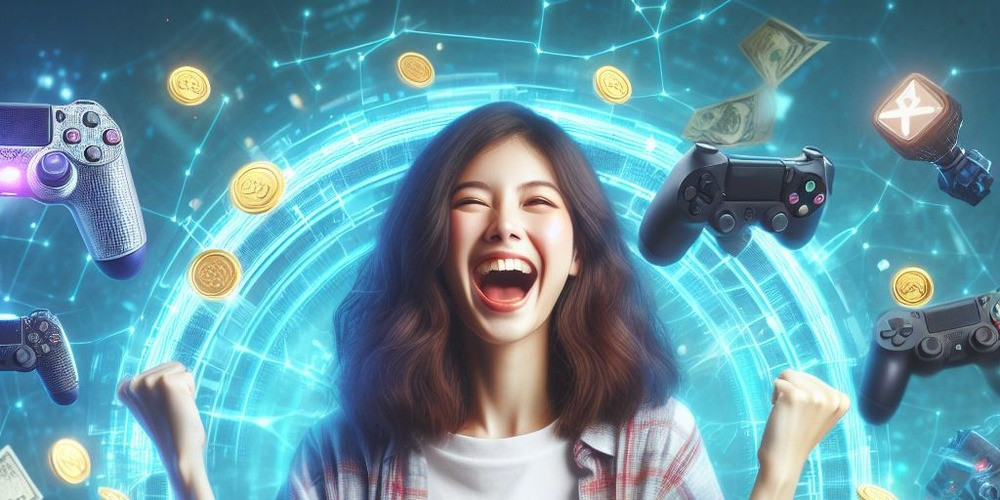Exploring the Visual Advantage in Gaming: A Deep Dive

Have you ever wondered why some gamers seem to have an uncanny ability to react to the fastest movements, making game-winning decisions in a fraction of a second? It turns out, the secret to their success might be hidden in plain sight—quite literally. Recent research sheds light on how the way our eyes perceive motion and light could play a significant role in gaming proficiency. This revelation offers a fresh perspective on the age-old debate of natural talent versus acquired skill, particularly in the realm of competitive gaming.
The Science Behind Seeing Faster

The intriguing study, titled "The speed of sight: Individual variation in critical flicker fusion thresholds," presents a compelling argument that some individuals naturally perceive visual stimuli at a faster rate than others. This was demonstrated through an experiment wherein participants were exposed to a rapidly flickering light source. The task was to identify the point at which the flickering seemed to merge into a constant light. Remarkably, the results varied significantly, with some individuals ceasing to perceive the flicker at 35 times per second, while others could detect the flickering at rates of 60 times per second or even higher.
Consistency Over Coincidence
One of the key takeaways from the study is the consistency of these observations among the participants who could perceive light flickering at faster rates. This consistency suggests that this ability is less about chance and more about an inherent perceptual skill. Such findings underscore the importance of individual differences in visual perception speed, especially in environments where rapid recognition and response to visual cues are paramount.
Implications for Competitive Gaming

Professor Kevin Mitchell, a leading neurobiologist from Trinity College Dublin and a contributor to the study, posits that individuals with the ability to perceive flickering at higher speeds may inherently possess a competitive edge in scenarios demanding quick visual recognition and reaction. This advantage could manifest in various high-speed situations, from tracking a swiftly moving ball in sports to navigating the ever-changing landscapes of competitive gaming worlds.
Reframing Natural Talent
The notion that some players may be naturally predisposed to excel in gaming because of their visual perception capabilities adds a new dimension to the understanding of talent in esports and competitive gaming. This insight is somewhat bittersweet, as it acknowledges innate disparities in gaming potential. However, it also highlights the multifaceted nature of skill, suggesting that while we might not all start from the same baseline, areas like visual perception can, to some extent, be developed and honed over time.
Training Your Eyes for Gaming Success

Despite the inherent advantages that some individuals may have, the study also offers hope for those aspiring to improve their gaming abilities. The adaptability of the human brain and its sensory processing systems means that visual perception skills can be trained and enhanced with practice. Participating in tasks that test the visual capacity, like engaging in fast-paced video games or undertaking sports that necessitate swift visual observation, may enhance an individual's proficiency in discerning and responding to quickly changing visual inputs.
In conclusion, while the discovery that some gamers might have a natural advantage due to how their eyes process visual information might seem discouraging at first, it also opens up new avenues for understanding and improving gaming performance. This research not only adds to the ongoing discourse on the nature of skill and talent in gaming but also encourages players to explore and develop their visual perception abilities. As the competitive gaming landscape continues to evolve, embracing the complexity of human perception and its impact on gaming success might just be the next frontier for players and enthusiasts alike.
So, before you throw in the towel on your dreams of esports glory, remember that proficiency in gaming, like any other skill, is a multifaceted construct. With dedication, practice, and perhaps a bit of focused training on visual perception, the playing field might be more level than it appears. Dive into the world of competitive gaming with an understanding of your visual strengths and areas for improvement, and who knows? You might just find yourself outmaneuvering opponents in ways you never thought possible.
Latest posts
See more-
![The Last of Us Part II: In-Depth Character Analysis and Storyline Exploration]() Editor’s Choice
2024-08-11
The Last of Us Part II: In-Depth Character Analysis and Storyline Exploration
The Last of Us Part II is an action-adventure video game that has gained significant popularity since its inception. Developed with immense creative prowess by...
Editor’s Choice
2024-08-11
The Last of Us Part II: In-Depth Character Analysis and Storyline Exploration
The Last of Us Part II is an action-adventure video game that has gained significant popularity since its inception. Developed with immense creative prowess by...
-
![CrossCode Developer Announces Alabaster Dawn, Enters Early Access in Late 2025]() News
2024-08-12
CrossCode Developer Announces Alabaster Dawn, Enters Early Access in Late 2025
In 2021, Radical Fish Games initially introduced a new action RPG titled Project Terra. Now, they have officially named it Alabaster Dawn and announced that...
News
2024-08-12
CrossCode Developer Announces Alabaster Dawn, Enters Early Access in Late 2025
In 2021, Radical Fish Games initially introduced a new action RPG titled Project Terra. Now, they have officially named it Alabaster Dawn and announced that...
-
![Alabaster Dawn Planned to Have 30-60 Hours of Playtime, Demo Launching in Early 2025]() News
2024-08-13
Alabaster Dawn Planned to Have 30-60 Hours of Playtime, Demo Launching in Early 2025
Radical Fish Games has made an exciting announcement regarding their upcoming action RPG, Alabaster Dawn, which is set to enter early access in 2025. In...
News
2024-08-13
Alabaster Dawn Planned to Have 30-60 Hours of Playtime, Demo Launching in Early 2025
Radical Fish Games has made an exciting announcement regarding their upcoming action RPG, Alabaster Dawn, which is set to enter early access in 2025. In...
Latest Reviews
See more-
![]() Action
Cult of the Lamb
Action
Cult of the Lamb
-
![]() Action
WILD HEARTS™
Action
WILD HEARTS™
-
![]() Casual
Gacha Club
Casual
Gacha Club
-
![]() Action
Call of Duty®: Warzone™ 2.0
Action
Call of Duty®: Warzone™ 2.0
-
![]() Action
Gacha Cute
Action
Gacha Cute
-
![]() Action
Cuphead - The Delicious Last Course
Action
Cuphead - The Delicious Last Course










